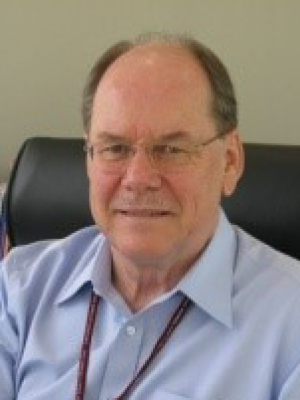About
Rod Hoff is working with faculty to expand the UW School of Public Health's research and training programs on emerging infectious diseases and on building capacity for global health security. He gives guest lectures courses of Dr Cangelosi.
Prior to joining the UW SPH Rod served for 6 years as the Executive Director of the Regional Emerging Diseases Intervention (REDI) Center in Singapore, which had a mission to enhance the Asia Pacific Region capacity to monitor, detect and respond to emerging disease threats. The Center sponsored regional research projects on avian and seasonal influenza, dengue, chikungunya, acute respiratory diseases, and hand foot and mouth disease. The Center also conducted training workshops on prevention of hospital acquired infections, laboratory diagnosis of avian and seasonal influenza, laboratory biosafety, field epidemiology, outbreak investigation and response and monitoring and evaluation of HIV and TB treatment programs. These activities resulted in comprehensive reports on Strengthening Health Security and Bio-Preparedness in Southeast Asia and a Guide to Clinical Management and Public Health Response for Hand, Foot and Month Diseases (HFMD).
Prior his Singapore experience, Rod worked for 16 years at the Division of AIDS at the National Institute of Allergy and Infectious Diseases at NIH where he coordinated development of the HIVNET and HPTN multi-center clinical trial networks for evaluating vaccines and other preventive interventions for HIV and the Comprehensive International Program for Research on AIDS (CIPRA) that supported HIV/AIDS research projects in 24 countries. He also chaired the Scientific Review Committee for HIV Vaccine and Prevention Research at NIAID. Rod retired from NIH in 2006.
Rod received his Doctor of Science Degree from Harvard University School of Public Health in 1974 and has held faculty positions at Harvard School of Public Health from 1975-1985 and at Tufts Medical School from 1986-90. He served with the US Peace Corps in Thailand from 1965-67 and as a Medical Service Officer in the US Army from 1968 to 1971. From 1974-1979 he headed the Harvard/Wellcome Bahia Project in Brazil where he conducted research on Chagas disease, schistosomiasis, and leishmaniais. While at Massachusetts State Laboratory from 1985-1990 he implemented state-wide newborn screening programs for congenital toxoplasmosis and sickle cell disease and designed and initiated a multi-state study of HIV seroprevalence in childbearing women by testing anonymous blood samples from newborns.

